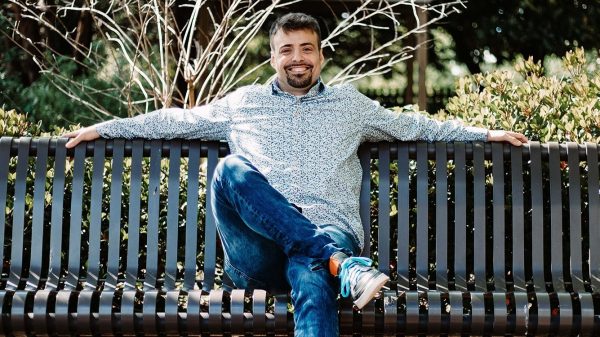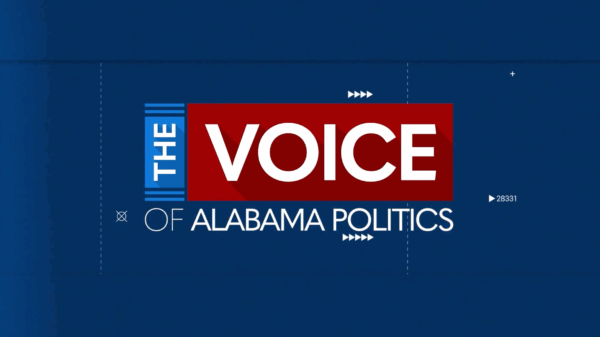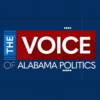By Bill Britt
Alabama Political Reporter
What we commonly refer to as the “First Thanksgiving” was celebrated by the Pilgrims after their first harvest in the New World in 1621. According to writing of the leader of the Plymouth Colony in Massachusetts, William Bradford. In Bradford’s journal “Of Plymouth Plantation” he describes the Pilgrims’ safe arrival at Cape Cod aboard the Mayflower.
“Being thus arived in a good harbor and brought safe to land, they fell upon their knees & blessed ye God of heaven, who had brought them over ye vast & furious ocean, and delivered them from all ye periles & miseries therof, againe to set their feete on ye firme and stable earth, their proper elemente.”
While the spellings, the names and national origins have changed many have set foot of the “firm and stable earth,” on what we now know as the United States, falling upon their knees and blessing the God of heaven. The Pilgrims came to these shores to find the religious freedoms they had been denied in the Old World.
Another group came to this new land to find a new secular or economic freedom. They sought a land were they could throw off the shackles of class and poverty and use their talents to build an empire of wealth.
They did not come to America looking for religious freedom, many came looking for freedom from the religion of rulers king or minister. They looked for a secular freedom that allowed them to live free beholden to none but their own conscience. Religious and secular freedoms have always had an uneasy alliance in the New World, but one that has worked for the most part to the betterment of nation.
Our nation’s founders in their wisdom added the First Amendment to the US Constitution known as the The Establishment Clause:?
The First Amendment provides that “Congress shall make no law respecting an establishment of religion….”
The Nolo’s Plain English Law Dictionary states,
“Contained in the First Amendment to the U.S. Constitution, this clause prohibits the government from establishing an official religion. It also prohibits the government from preferring one religion over another, preferring religion over non religion, or vice versa.”
As the Court noted in 1947,
“A large proportion of the early settlers of this country came here from Europe to escape the bondage of laws which compelled them to support and attend government-favored churches.” Everson v. Board of Education, 330 U.S. 1, 8 (1947). The Court went on to emphasize that “no one group throughout the Colonies can rightly be given entire credit for having aroused the sentiment that culminated in adoption of the Bill of Rights’ provisions embracing religious liberty,” and that the principles were as apt at the time of the Court’s decision as they had been when the First Amendment was originally passed in 1792.
The words separation of Church and State do not appear anywhere in the US Constitution. However, on January 1, 1802, Thomas Jefferson, the third president of the United States, wrote a letter to the Danbury Baptist association concerning the “wall of separation of church and state.”
Jefferson’s metaphor of a wall of separation has been cited repeatedly by the U.S. Supreme Court. In Reynolds v. United States (1879) the Court wrote that Jefferson’s statements “may be accepted almost as an authoritative declaration of the scope and effect of the [First] Amendment.” In Everson v. Board of Education (1947), Justice Hugo Black wrote: “In the words of Thomas Jefferson, the clause against establishment of religion by law was intended to erect a wall of separation between church and state.”
Some would argue that the Court has not always interpreted the constitutional principle as absolute, and the proper extent of separation between government and religion in the country remains an ongoing subject of impassioned, often hostile, debate.
So for many, we celebrate Thanksgiving as a holiday of giving thanks to God for the blessings we have received. I am thankful that the state cannot dictate what church I attend or if I adhere to any religious doctrine. While I personally try to follow what I understand as a strict textual interpretation of the Word of God, I certainly do not wish for government to compel anyone to believe as I do.
In this there is a yearning for freedom from religion, this too is something that I believe is emblematic of our republic. The idea of free speech and for the freedom of action that follows from free thought is imperative to a truly free society. Perhaps the essence of the argument for the separation between church and state is in the argument for the separation between government force and freedom of thought.
This idea that the state exists not to enforce public morality, but to protect man’s rights from being violated by other men, is something that was inviolate to thinkers like John Locke.
Locke maintains that, “Covetousness, uncharitableness, idleness, and many other things are sins by the consent of men, which yet no man ever said were to be punished by the magistrate. The reason is because they are not prejudicial to other men’s rights, nor do they break the public peace of societies… the business of laws is not to provide for the truth of opinions, but for the safety and security of the commonwealth and of every particular man’s goods and person…”
In this opinion a nation should not be granted powers to compel its citizens with a rule of commandment, be it Christian, Muslim, Hindu or any other religious construct.
Separation of church and state for many Americans does not mean a separation of God and Country. But one can argue that the state should not hold to itself the right to legislate a particular brand of morality. Certainly, most Americans would find Sharia Law as practiced by some Muslim countries as an abomination in Western thinking. Yet, governments do legislate morality. In our country, it has been primarily the Judeo-Christian ethos that has been the prime mover of our moral law. But, there is always an ebb and flow between moral law and criminalizing private behavior.
Prohibition was a law that certainly held the high ground, where a vocal minority, acting on heartfelt religious beliefs, attempted to force a broad moral consensus. In the end, this moral majority did not exist. In the last General Election it can be argued that those who wanted a more moderate society prevailed.
While, on Thanksgiving, I will thank God for His bountiful blessing. I will also be thankful I live in a country where others will not. We are all welcome Americans and no matter how we celebrate Thanksgiving, we all will have Black Friday, to love or loath.



















































